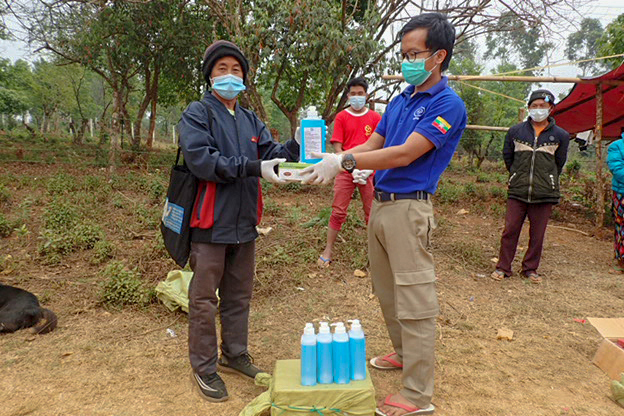Refugee camps are COVID-19 tinderboxes
For the tens of thousands of displaced families living in temporary camps in Myanmar the spread of COVID-19 is a terrifying threat. How do you keep your children safe when conditions are overcrowded and access to clean water, toilets and healthcare is severely limited?
Located 500 miles north of Yangon, HALO has been working in Northern Shan State for the last five years. It has been the scene of bitter fighting between ethnic armed groups and the Myanmar military in the country’s never-ending civil conflict. In 2019, fighting intensified, forcing thousands more people to flee their homes and join the numerous families already living in IDP (Internally Displaced People) camps across the region.

HALO has been working to protect the vulnerable—teaching people in the camps how to stay safe from landmines and explosives and working with partners to assist those injured in the conflict.
COVID-19 is confirmed in Myanmar
The first cases of COVID-19 have been confirmed in Myanmar. For families already struggling to survive in crowded camps, the impact could be devastating. Social distancing measures are all but impossible and estimates suggest 70,000 displaced people in the area don’t have access to adequate aid. According to international aid organisations, those living in camps are also more likely to have underlying medical conditions putting them at a high risk of suffering serious effects from the virus.
Reaching the Vulnerable

In response to the COVID-19 threat, HALO acted immediately to reach the vulnerable. Thanks to funding from UNOCHA the team purchased vital hygiene kits, including: soap, sanitizer and face masks. Working with the local authorities we began delivering to IDP camps across Northern Shan—reaching 13 camps in total. In the coming weeks we will continue to work with UNOCHA and our partners to protect those in need.


